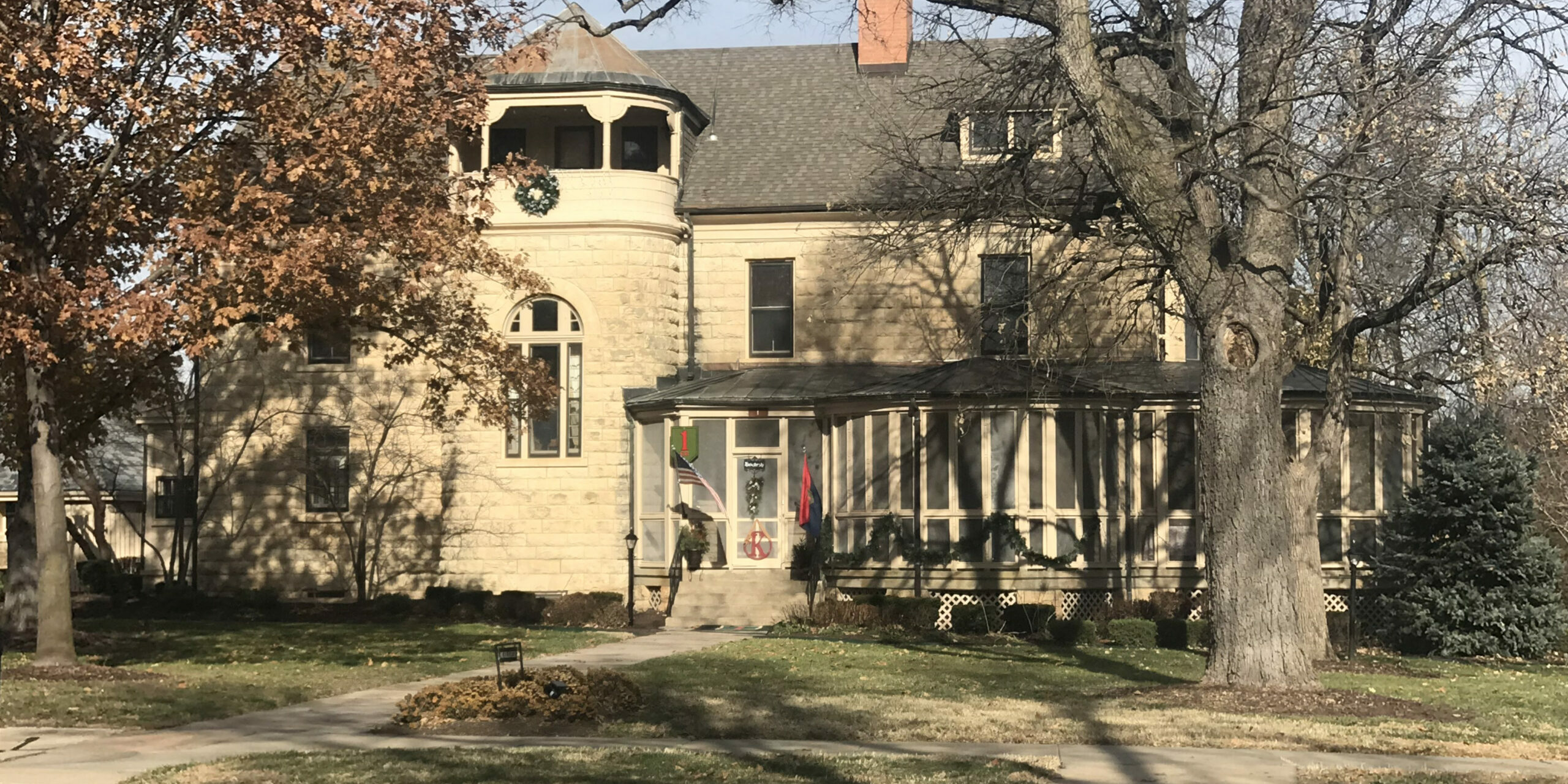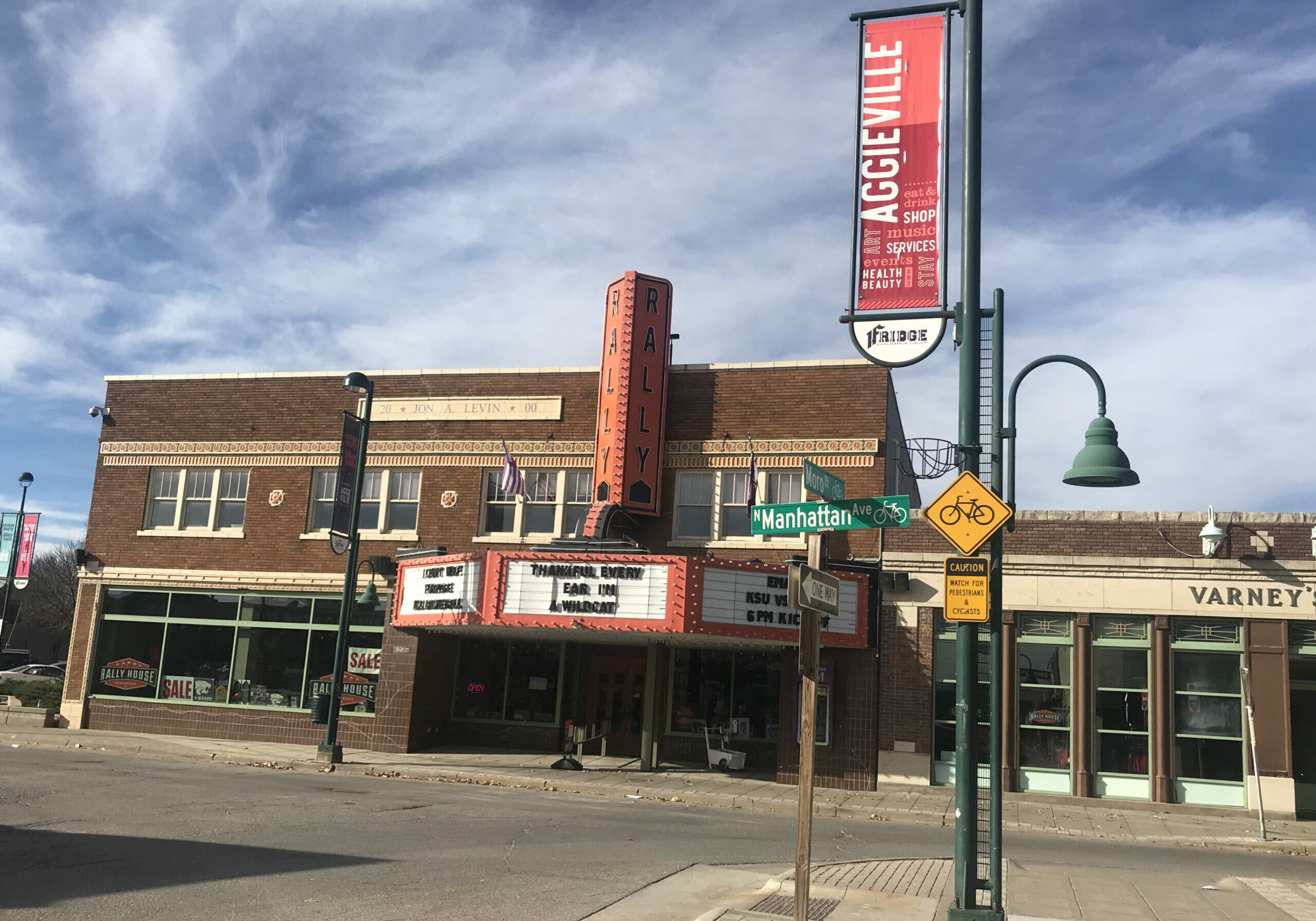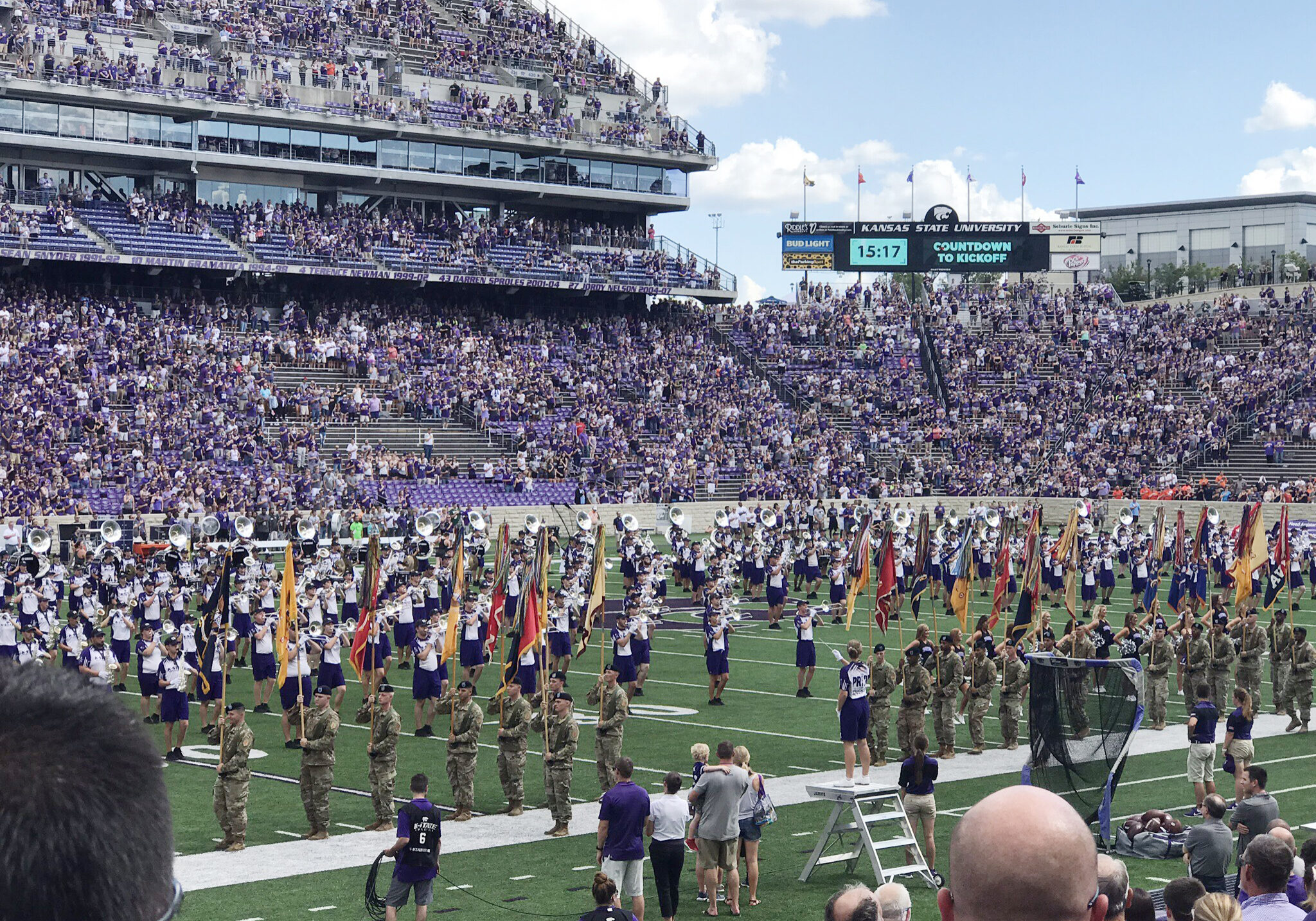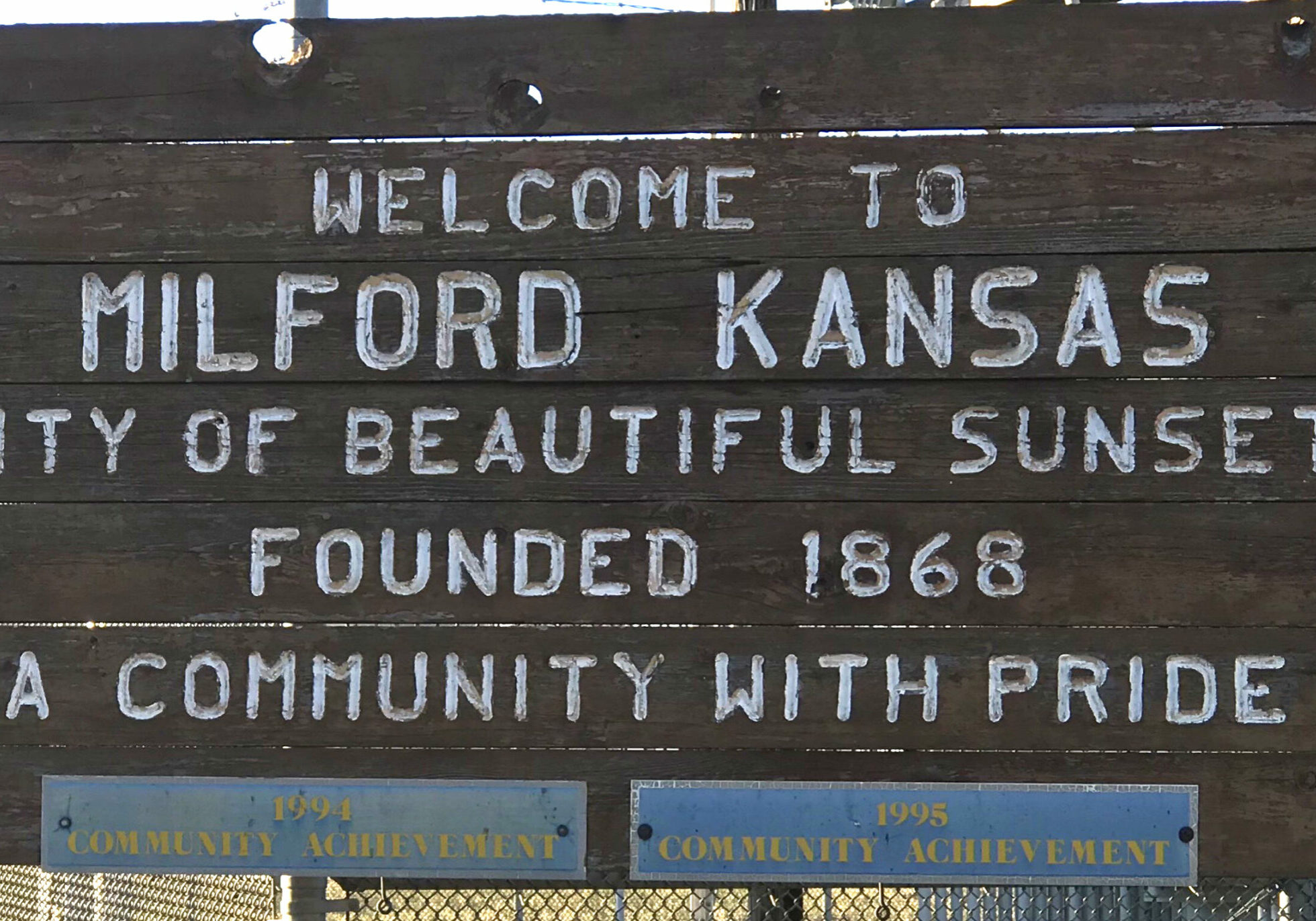Fort Riley
About Fort Riley
Nestled near the banks of the Kansas River in North Central Kansas, just about an hour from Topeka, Fort Riley is a historic post currently home to approximately 15,000 active duty soldiers and their families. Named for Major General Bennett C. Riley, who led the first military escort along the Santa Fe Trail, Fort Riley first opened in January 1853 to protect the movement of people and cargo over the Oregon, California, and Santa Fe Trails. Fort Riley is currently home to the 1st Infantry Division, also known as “The Big Red One,” which celebrated its 100th birthday in 2017.
Fort Riley has been in continuous operation since its founding in 1853. In 1887, it became the home of the 1st U.S. Cavalry School. It is also known as Ground Zero for the Spanish Flu Pandemic of 1918. Soldiers trained at Fort Riley took the flu strain with them to Europe during World War I, decimating the population of that region. While this may not seem like the type of history one would be proud of, what Fort Riley does pride itself on is housing the 9th and 10th Cavalry regiments (more famously known as the “Buffalo Soldiers”) at various times throughout the 19th and 20th centuries.
While the Midwestern mid-Western plains of the United States are not typically thought of as vacation destination hotspots, the reality is that life here is laid back, with a suburban lifestyle that lends itself well to raising a family. So good that you may join the legions of military retirees who choose to live here when their active duty service time is over. Add in that Midwestern grit and friendly, helpful charm, and this assignment may be one of the best you ever have.
Fort Riley may be the perfect spot if you are okay with annual average temperatures ranging from 15 degrees (°F) in the winter to 90 degrees (°F) in the summer. Although an average of 126 days per year fall below freezing, this area of Kansas receives an average of only 14 inches of snow each year, making it easy to navigate year-round. Tornadoes are not uncommon in this area of the country (it is, after all, the home of Dorothy Gale). So while you may see little snow, chances are that you will still experience some exhilarating weather.
The post boasts many historic buildings, and the sense of history here is palpable. Stroll along the banks of the Kansas River or look out over the vast plains. It is easy to imagine the hundreds of people caravanning west in search of a better life or greater opportunities for their families. Alternatively, the terrain elicits images of vast herds of buffalo, and you can see why these hardy animals were so easy to hunt virtually to extinction. Take a tour of Custer House and get a feel for how things were back when General Custer was stationed here. Or head to nearby Milford Lake, Kansas’ largest lake, for a day filled with water activities. It may not seem like it’ll be one of the better places the military has sent you. Still, if you give it a chance, this area’s small-town charm, coupled with big-city amenities (Manhattan, KS and Junction City, KS are close by, and the state capital, Topeka, is only an hour away) may just grow on you.

Keep in mind that Fort Riley is in the middle of the country. Farming and rural industry is the norm. The “big cities” in the area are Manhattan (home of Kansas State University)—with a population of roughly 55,000—and Topeka, the state capital, whose population tops out at 127,000. If you are looking to experience small-town America, this is your chance. Many amenities, such as shopping or dining, will involve a drive. Homeschooling and private schooling are popular options for those stationed here. Fort Riley does offer a School Liaison Office to help with placement and transfer needs.
Looking at relocating?
Enter your information below and we will reach out to help the process.
Nearby Neighborhoods
Fort Riley
As you may expect, the military is a major employer in this area of Kansas. For many military families, living on post is an attractive prospect. With newer housing, many amenities designed to support families, and access to some of the better schools in the area, this may be the one post where accepting military housing makes the most sense. While military housing is in high demand, Fort Riley makes every effort to ensure that you won't be waiting long if you’re placed on the waiting list. While you wait, Fort Riley’s Housing Office can help you secure temporary housing.
Key Contacts
Housing Services Office
215 Custer Avenue
Fort Riley, KS 66442
PH: (785) 239-3525
School Support Services
6620 Normandy Drive
Fort Riley, KS 66442
PH: (785) 240-3261
Big Plus
- Living here provides you with proximity to post amenities and activities.
- Two words for you: No commute.
- This area is quiet with a welcoming community feel
- Access to better-rated schools makes a living on base attractive to families with school-age children.
Things to Consider
- Houses on the base may be small.
- Fort Riley is farther away from big-city amenities like shopping
and dining. - There may be a wait for housing.

Junction City
Junction City is a common choice for those who don’t wish to live on post. Located approximately 15 minutes southwest of the post, this city of 23,000 provides a small-town feel with certain big-city amenities. It is the county seat of Geary County (also home to Fort Riley) and is named for its position at the confluence of the Smoky Hill and Republican Rivers. Incorporated in 1859, Junction City provides sweeping views of the Flint Hills and is an easy drive to Kansas’ largest lake, Milford Lake.

Big Plus
- More amenities are available.
- At only 15 minutes away from Fort Riley, living in Junction City means you
can enjoy relatively short commutes. - From this area, residents are in closer proximity to attractions like Milford
Lake.
Things to Consider
- Great for families who love outdoor activities
- Small town feel also leads to fewer entertainment options
- Here you’ll get a smaller home for the money.
Manhattan


Not to be confused with its big sister in New York, “The Little Apple,” as it is affectionately known, is home to Kansas State University. Situated between the Kansas and Big Blue Rivers, this city of 55,000 has a college-town feel, and the university has a good relationship with the post. Living in Manhattan may be a great option if you want to continue your education while stationed at Fort Riley. Manhattan boasts several attractions, including the Sunset Zoo, which is home to an impressive array of Asian and African animals; the Tuttle Creek State Park and Reservoir, which allows for all kinds of recreational opportunities; and Manhattan’s vibrant downtown area, which is home to numerous festivals and activities. Its proximity to post, only 8 miles away and its big-city amenities make this a popular and attractive choice. However, the commute is typically over 30 minutes, mainly due to the congested city streets.
Big Plus
- Many find the college-town feel of this area appealing.
- Big-city amenities are easily accessible.
- Its attractive downtown area provides access to many happenings and
activities.
Things to Consider
- Residents experience a slightly higher cost of living.
- Housing is a bit more expensive.
- The commute time is longer, despite being less than 10 miles away
from post.


Ogden and Milford
While these two towns are located in opposite directions from Fort Riley (Ogden is northeast and Milford is northwest), they both offer a true small-town, middle-America charm. Both were founded around the same time, with Ogden being named after the Army general who built Fort Riley, and Milford is home to an early lumber mill that partially supplied the building materials that made up the fort. Ogden is slightly larger, with a population of 2,000, while Milford’s 500 residents enjoy its location on the banks of Milford Lake. While homes may be smaller, they are reasonably priced. The commute to post from either town is roughly 30 minutes. Amenities are few, and travel is required for most anything. However, if rural is your preference, either of these towns is a good choice.
Big Plus
- Small-town living and rural charm characterize this area.
- Housing is reasonably priced.
Things to Consider
- Commute time is longer, at around 30 minutes.
- It’s a good idea to research the local schools before making a decision
on housing - Getting to big-city amenities will require some driving time.
7 Reasons You Should Consider Buying a Home
1. TAX ADVANTAGES
To encourage homeownership, the IRS has provided many tax breaks for owning a home. Credits may be available for specific home improvements, such as using clean energy or for qualified first-time home buyers. The way most homeowners see those advantages is through income tax itemization and deductions like mortgage interest and real estate taxes.
2. STABALIZE MONTHLY HOME COSTS
Owning your own house is one of the safest bets on stabilizing your monthly home costs. There’s no worry of rent getting increased significantly after each year of living in someone else’s home. Additionally, when you answer to yourself, there is no worry of landlord changes or unexpected lease termination.
3. HOUSE HACKING
Generally speaking, house hacking is a smart strategy that involves renting out a portion of your primary residence as a means of generating income to offset your own living expenses. Think turning your finished basement or mother-in-law quarters into an AirBnB! Or consider purchasing a multi-unit duplex or triplex: live on one side and rent out the other! If your home making money while you’re living in it doesn’t sound like your thing, there’s always renting it out after you PCS as an income generating investment property.
4. Increased Privacy
Generally speaking, house hacking is a smart strategy that involves renting out a portion of your primary residence as a means of generating income to offset your own living expenses. Think turning your finished basement or mother-in-law quarters into an AirBnB! Or consider purchasing a multi-unit duplex or triplex: live on one side and rent out the other! If your home making money while you’re living in it doesn’t sound like your thing, there’s always renting it out after you PCS as an income generating investment property.
5. Pets Are Welcome!
For those who choose to rent instead of buying, it can be extremely difficult to find rentals who allow for your
four-legged, furry friends. Landlords often require hefty pet deposits or place heavy restrictions on the number of pets and breeds they allow—if they will even allow pets. When considering quality of life, including beloved pets and the indoor and outdoor space available to them matters. Having the flexibility to include ALL members of your family as a homeowner is priceless!
6. Pride of Ownership
One of the greatest benefits of owning your own home is the pride of ownership that comes along with it. Not only are homeowners more inclined to take good care of their investment with routine maintenance and cleaning, but also they are free to make design choices ranging from hanging artwork on the walls, to paint colors, to customization of closets, electronics, and more. As military families who relocate frequently, having your home reflect who you really are feels important.
7. Safe and Stable Long Term Investment + Forced Savings
Owning a home has historically been one of the safest, lowest risk financial investments that tends to have long-term stability and success. As your home value appreciates and your mortgage balance decreases, what’s left is growing equity with an eventual paid off home. Making a monthly house payment is akin to setting aside a specific amount each month into a savings account—it’s a little difficult to access in the moment, but over time it can build into something significant in the form of equity.

FIVE RESOURCES TO HELP YOU IN YOUR RELOCATION PROCESS

Your PCS is underway!
The home buying and moving transition process has begun. Now what? If it feels like there are a million things to do, don’t fret because you don’t have to do them all yourself. During the relocation process, there are many service providers that can assist you in making your move a smooth one.
Consider these five resources to help you in the process
1. MOVING COMPANIES
Sure, the military offers transportation and relocation services, but many service members decide to coordinate the transfer of household goods themselves. Not only can you often earn money on the difference between moving costs and weight allowances, but you can be assured that you have more control over your belongings. Services that moving companies offer can range from delivery of boxes and pods for the “you-pack” model all the way to full-service logistics companies that will do all of the packing, loading, driving, and unpacking for you.
2. STORAGE
Whether you need to store your household goods for a few weeks until you close on your home or you decide that you have more stuff than square footage, storage companies abound. Sizes, conditions, and contracts vary widely so be sure to do your homework before you commit. Particularly in climates with extreme cold, heat, or humidity, it is important to consider using only climate-controlled storage to ensure the protection of your furniture and temporarily unused items.
3. TEMPORARY HOUSING
It is not uncommon for there to be a short gap of time during a military move between when you arrive at your new duty station and your new home being available to inhabit. No longer are hotels the only option for sticking out a few days or weeks during the wait. Vacation Rentals by Owner (VRBO) and Airbnb are great options to make you feel more at home while you wait for your home. In fact, why not take advantage of seeing your new city through the eyes of a tourist? Find a location near new local attractions and dining and enjoy a few days of getting to know the lay of the land.
4. USPS/IRS
Once you get settled in at your new home, it’s important that you alert agencies that will make sure your current and up-to-date address is on file. The United States Postal Service (USPS) and the Internal Revenue Service (IRS) are two of the most important and by doing so, any important mail or documents in your name should be forwarded or sent along to your new address. It’s also a good idea to notify banks, credit card companies, and other debt collectors of a change of address. These days nearly all of these transactions can be handled online.
5. DISCARD & DONATE SERVICES
No matter how much you purge, toss, organize, minimize, or donate before you pack up the moving truck, it never fails that after you get unpacked on the other side there seems to be more stuff to declutter. Discard and donate services can help with this. Many are a phone call away and will happily come to your residence for a pickup. Others are structured where you simply drop off at a store. A lot of these services are charitable organizations and will offer you documentation for your own taxes based on your donation. It’s a win-win: you downsize by donating, and someone else benefits from your use of your items.

